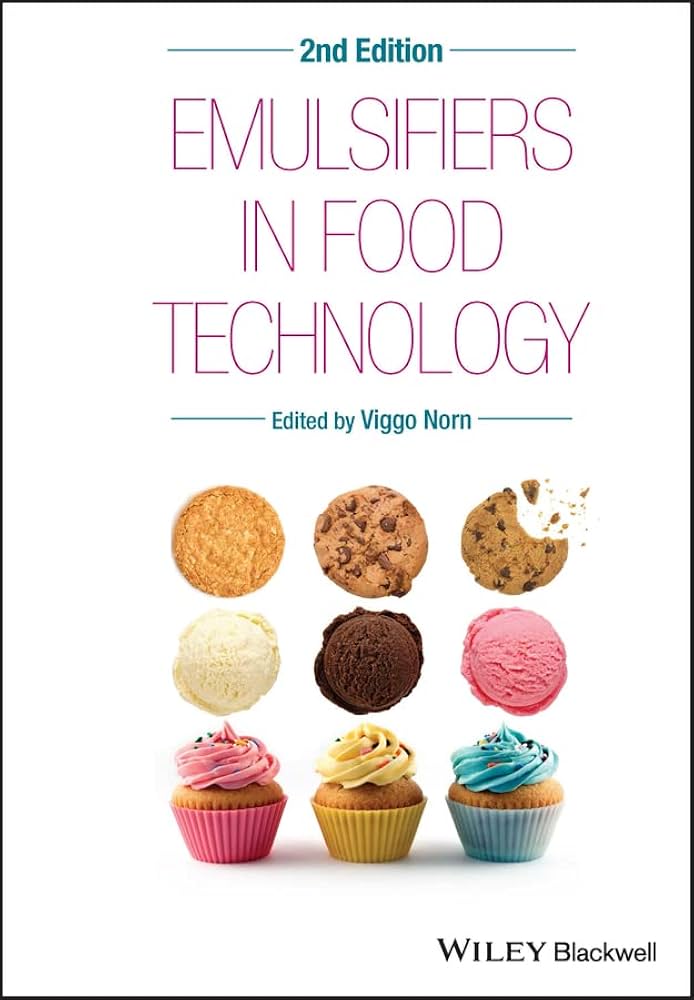All Concerning the Role of an Emulsifier in Food and Its Value in Modern Food
Emulsifiers are critical in contemporary food, helping with the blend of immiscible fluids like oil and water. Their ability to maintain combinations enhances the texture and taste of different food products. From salad dressings to baked items, emulsifiers play a substantial function in both commercial and home cooking. The scientific research behind their function and the future innovations in their use continue to be much less discovered. What a lot more could be unearthed regarding these necessary culinary representatives?
Understanding Emulsification: The Science Behind the Process
Although emulsification might look like an easy culinary strategy, it includes complex scientific principles that are essential for producing stable mixtures of immiscible liquids, such as oil and water. At the heart of this process exists the idea of surface stress, which protects against both fluids from mixing naturally. Emulsifiers, materials that minimize surface area stress, play a crucial role in promoting the combination of these fluids. They possess both hydrophilic (water-attracting) and hydrophobic (water-repelling) buildings, permitting them to secure themselves at the interface in between oil and water.
When an emulsifier is introduced and the mixture is flustered, it forms a protective obstacle around distributed beads of one fluid within the other, stabilizing the mixture. This activity not just boosts structure and mouthfeel in food items but likewise contributes to their aesthetic charm. Emulsifier In Food. Recognizing the scientific research behind emulsification is fundamental in modern-day food, permitting cooks to develop a selection of sauces, dressings, and emulsified meals
Typical Kinds Of Emulsifiers Utilized in Food
Emulsifiers are vital components in the food market, playing a crucial role in maintaining blends of oil and water. Different kinds of emulsifiers are commonly utilized, each with one-of-a-kind residential or commercial properties suited for various applications. Lecithin, acquired from soybeans or egg yolks, is among one of the most popular natural emulsifiers, usually located in dressings and chocolates. Mono- and diglycerides, which are stemmed from glycerol and fatty acids, are widely used in baked items and margarine to enhance appearance and expand service life. An additional typical emulsifier is polysorbate 80, preferred for its capacity to boost the uniformity of ice creams and sauces. Furthermore, xanthan gum and guar periodontal offer as thickening representatives that likewise add to emulsification in gluten-free items. These emulsifiers are essential to producing a secure, palatable product in contemporary food formulas, making certain an enjoyable sensory experience for customers.
The Role of Emulsifiers in Various Food Products
A variety of food count on emulsifiers to attain desired appearances and security. These substances promote the blending of immiscible liquids, such as oil and water, which is important in many processed foods. As an example, in salad dressings, emulsifiers help maintain a regular mixture, preventing separation and enhancing service life. In baked items, they contribute to a consistent crumb framework and dampness retention, improving total top quality.
Emulsifiers also play a significant role in dairy items, such as gelato and yogurt, where they maintain fat blobs, making certain a smooth mouthfeel. Furthermore, in sauces and dressings, they improve viscosity and boost spreadability. This functionality is vital in the production of delicious chocolates, margarine, and mayo, where a natural item is essential. In general, the use of emulsifiers in different foodstuff is essential to modern-day food production, improving security and consistency across a large range of products.
Exactly How Emulsifiers Enhance Appearance and Flavor

When integrated into food products, emulsifiers greatly boost both structure and flavor, developing a more satisfying consuming experience. These materials promote the blending of ingredients that generally do not blend well, such as oil and water, leading to a smoother, creamier consistency. This not only improves mouthfeel yet additionally permits flavors to distribute equally throughout the product, enhancing the general taste.

Emulsifiers in Home Food Preparation: Tips and Techniques
How can home cooks effectively use emulsifiers to enhance their dishes? Emulsifiers play a crucial duty in accomplishing desirable structures and flavors in homemade dishes. Utilizing egg yolks in mayo or hollandaise sauce allows for a stable solution, incorporating oil and water successfully. Home chefs can also try out mustard, which acts as an emulsifier in vinaigrettes, ensuring a smooth uniformity.
In cooking, integrating lecithin, discovered in egg yolks or soy, can enhance dough stability and wetness retention. Furthermore, using business emulsifiers like xanthan periodontal or guar periodontal can aid enlarge sauces and dressings while maintaining a velvety mouthfeel.
When creating gelato or whipped garnishes, emulsifiers can protect against ice crystal development, leading to a smoother texture. By mastering these strategies, home chefs can greatly raise their cooking creations, offering consistent and enjoyable meals that display the power of emulsification.
The Future of Emulsifiers in Culinary Advancement
As the cooking globe proceeds to progress, the duty of emulsifiers is positioned to become varied and increasingly innovative. Advances in food science are causing the advancement of brand-new emulsifying agents stemmed from natural sources, which accommodate health-conscious consumers and enhance the sensory top qualities of meals. Developments such as plant-based emulsifiers are getting grip, permitting chefs to produce vegan and allergen-free alternatives without endangering texture Read Full Article or taste.
In addition, making use of emulsifiers in molecular gastronomy is broadening, making it possible for chefs to explore unique textures and presentations that captivate diners. As sustainability comes to be a concern, the future may see a shift in the direction of green emulsifiers that decrease ecological influence.
Ultimately, emulsifiers will remain to play a crucial duty in cooking innovation, linking the void in between custom and modernity, and permitting chefs to press the borders of creative thinking in their kitchen areas.
Frequently Asked Questions

Are Emulsifiers Safe for People With Allergic reactions?
Emulsifiers can be safe for people with allergic reactions, relying on their details sensitivities. Certain emulsifiers, derived from allergenic resources like soy or eggs, may cause responses, requiring careful ingredient scrutiny and assessment with medical care specialists.
How Do Emulsifiers Affect Food Service Life?
Emulsifiers improve food service life by supporting blends, stopping separation, and lowering microbial development. This stability assists maintain structure and flavor gradually, permitting items to continue to be safe and enticing for usage longer than without emulsifiers.
Can Emulsifiers Be Derived From Natural Resources?
Yes, emulsifiers can be stemmed from all-natural sources such as plants, eggs, and dairy items (Emulsifier In Food). These natural emulsifiers aid support combinations, boosting appearance and uniformity in different food applications while being favored for health-conscious customers
What Are the Environmental Impacts of Emulsifier Manufacturing?
The ecological influences of emulsifier production include resource deficiency, habitat destruction, and pollution from synthetic procedures. Natural emulsifier sourcing can alleviate some results, but overall, industrial techniques still posture significant ecological obstacles to ecosystems worldwide.

Exist Vegan Emulsifiers Available in the Market?
Yes, there are several vegan emulsifiers readily available in the marketplace, such as lecithin stemmed from soy or sunflower, guar gum tissue, and xanthan periodontal. These options deal with plant-based diet plans without endangering emulsifying buildings.
Emulsifiers are necessary ingredients in the food industry, playing an essential duty in supporting visite site mixes of oil and water. A range of food products depend on emulsifiers to achieve preferred textures and security. When incorporated into food items, emulsifiers considerably improve both structure and flavor, creating an even more enjoyable eating experience. In addition, emulsifiers can stabilize air pockets in whipped items like mousses and lotions, leading to a light and ventilated appearance. Emulsifiers improve food shelf life by maintaining combinations, stopping separation, visit our website and decreasing microbial growth.